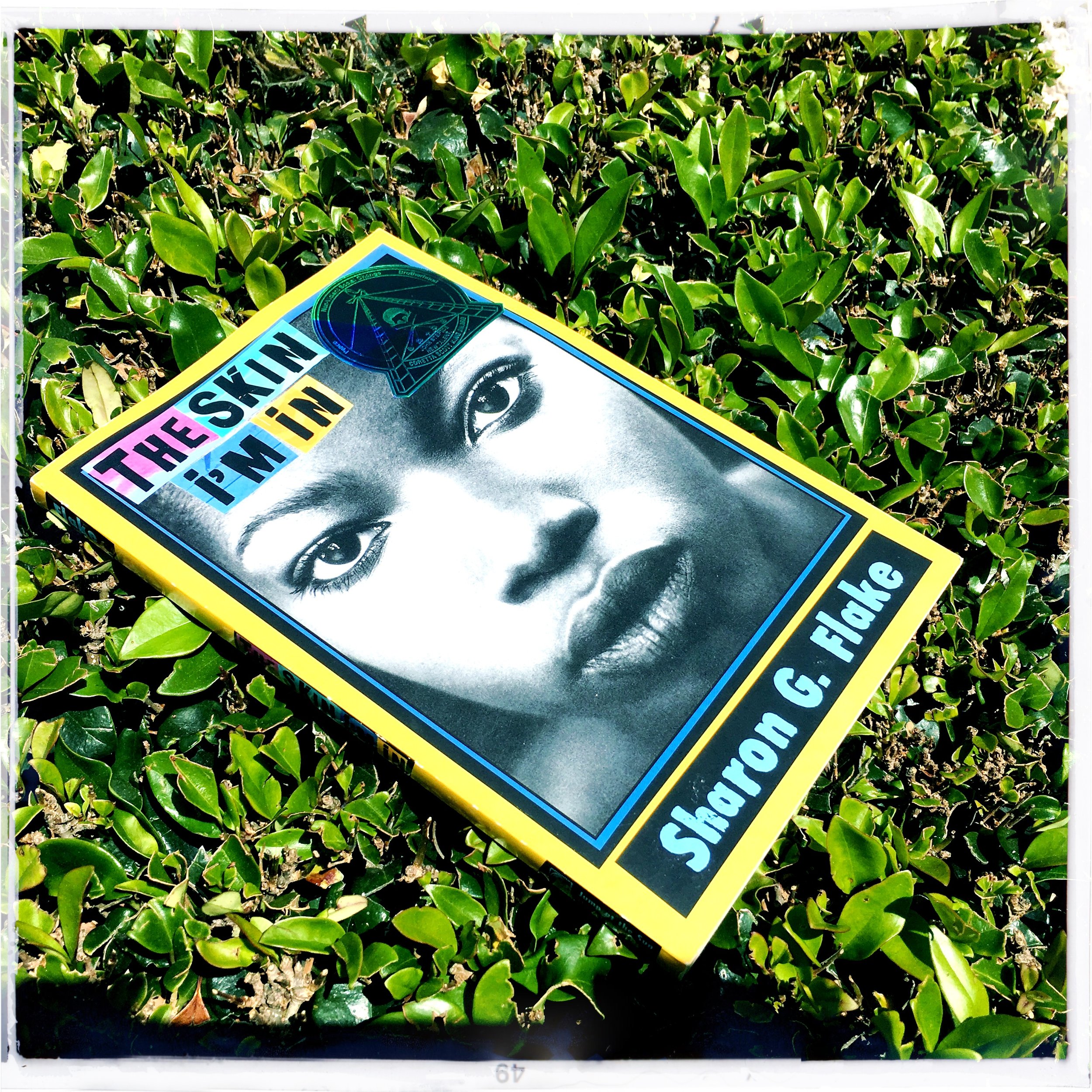Back to School with "The Skin I'm In" by Sharon Flake (Book Review)
Thanks for stopping by. Are you new to Black and Bookish? Please take a look around. These are the Books I've reviewed or you can Start Here to get an overview of who I am and what I do. Don't forget to subscribe to get news and posts sent straight to your inbox.
“Gotta realize that all you are is all you got.” - Sharon G. Flake
Summer is waning and back to school photos fill our Facebook and Instagram timelines. From Pre-Pre-K all the way up to "last first day of school" photos for starting seniors, I can almost taste the pumpkin in the air was we say sayonara to heat waves, pool parties, and reduced morning traffic. Hello to back-to-school shopping commercials and fading tan lines. It's been too long since a review graced this blogger's main page, and in homage to all things back to school, The Skin I'm In will take you right back to junior high.
Not realizing that I had previously read this book, it became an accidental reread for 2016. Some years ago I purchased a copy on a whim, just from the book cover and synopsis on the back. I was unfamiliar with the author but some of the story themes felt personally similar to my own middle school years. I promptly read it too. Numbering less than 200 pages I loved being able to add this novel to my shelves. At some point I misplaced, loaded, or donated my copy without even realizing it.
Earlier this year, a close friend recommended it after hearing of my personal book challenge. I promptly bought it, again. It was maybe 10 pages in that I realized that I might have read this before. I wasn't sure of the ending and grateful I stuck with it. Published in 1998, The Skin I'm In reverberates around the themes of color prejudice and misaligned beauty standards. Although this story is almost 20 years old, the ideas behind it are not new phenomena by any means.
51A3-17BOLL._SX332_BO1,204,203,200_
Centered around Maleeka Madison as she navigates the 7th grade, Maleeka is bullied by her peers (all black) about her appearance- her unkempt hair, her handmade clothes, and her very dark skin. "Maleeka's face says she needs to stay out of the sun," openly teases a classmate. Although she tries to ignore them, the constant attacks fuel her low self-esteem and she becomes the doormat of the grade-level mean girl. Maleeka soon learns that she cannot will herself invisible when Miss Saunders, a new teacher with her own beauty imperfections, sees real potential in Maleeka's work. Not looking to draw any more attention to herself, Maleeka tries every avenue to dismiss or discourage Miss Saunders attention; but how long can she deal with this hellish nightmare of teachers, students, and growing expectations?
Sharon Flake's debut young adult novel addresses the ways in which we doubt our own greatness. How we can ignore our own truths when other's lies become louder. I have met many women, just like myself, who can remember years of taunts from the other kids about our "nappy hair" or "preppy voices." Many darker skin women grew up being told to stay out of the sun or seeing their images synonymous with the angry black woman trope. Flake created Maleeka in solidarity to the women and girls plagued by societal norms created to hold us in our place.
OT-R5C1l
Recent media attacks toward Lessie Jones (for her role in the Ghostbuster's reboot), Gabby Douglas (for not so perfect hair AFTER winning an Olympic medal), and Lil Kim (for her huge transformation after lighting her skin and receiving cosmetic surgery) show that black women are viewed as lower when embracing their skin, and seen as fake when trying to change it. Jones and Douglas have continually embraced self-love in these circumstances but are honest in how these situations are painful to endure. Authors like Sharon G. Flake, Chimamanda Ngozi Adichie, Roxane Gay, Octavia Butler, and Alice Walker bring to light these challenges women like me face just for having a darker face, as well as campaigns like The Colored Girl Project, taking "a term that was derogatory and negative, and turn[ing] it into something beautiful."
One final note: Some readers might find the writing difficult to digest. The Skin I'm In is written in African American Vernacular English (AAVE), like so many books written by black authors. AAVE is a common dialect spoken by blacks and many (like myself) can code-switch between AAVE and Standard American English. PLEASE, don't let that deter you.
The Skin I'm In is a wonderful look into learning to believe in yourself no matter what you look like. It will give you a small glimpse into color politics, but mostly hope that we can work through these man-made limitations. I hope you enjoy it as much as I did. You can purchase it here from Amazon.


